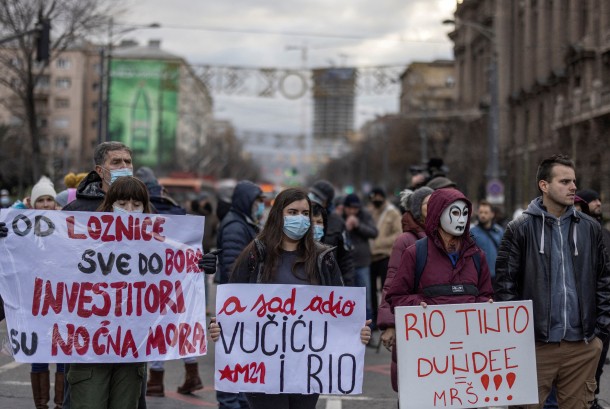The Serbian region around the Jadar Valley lives mainly from agriculture and tourism. All the more threatening were the plans of an international mining monopoly to mine lithium on their doorstep. Rural masses and environmentalists resisted these plans.
Serbia had "citizens who don't want to destroy their land for a bag of lithium dollars," a Serbian newspaper concluded about it. They did not want to have their land bartered away to the British-Australian mining company RioTinto, which planned Europe's largest lithium mine there. The people feared strong environmental destruction in the region, because lithium mining releases arsenic, which poisons the groundwater.

The Serbian government was determined to push through the open pit mine. As is so often the case in semi-colonial countries, the rulers serve as stooges of the imperialists and can count on a small share of the profits through more or less covert corruption. At the lowest levels RioTinto bribed schools, sports clubs and churches in order to gain the sympathy of the population. Furthermore, the project was also intended as a sign of further rapprochement with the EU, of which the government would like to be a member. Cynically, the mining concessions were intended to regain the "international recognition" that had been taken away from them by the imperialists in the course of the Yugoslav war. Where the EU is, Germany is first in line, and so Merkel also made claims to Serbian lithium during her last appearance in Serbia: "If the whole world is interested in it, we are interested too. That is clear."
Once again, it became apparent that the so-called energy transformation has a class character. In many ways, the electric car business is being done on the backs of oppressed peoples. But the protests seem to be successful for now. After first being postponed, the project has now been declared a failure by the government, which fears for its re-election. As a result, RioTinto shares lost a good 5% in value.
